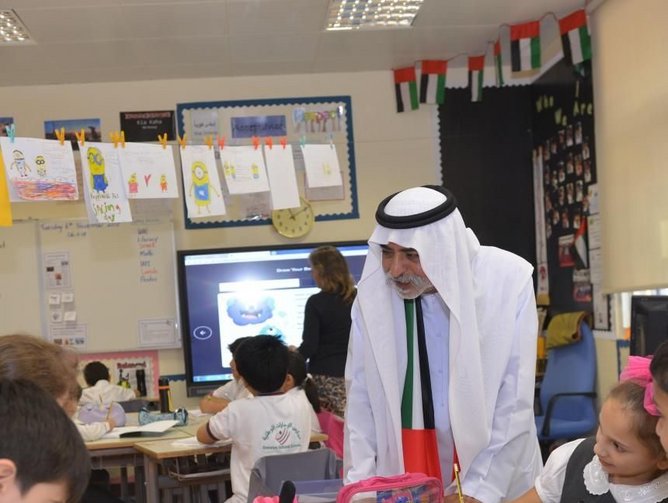Emirates National Schools: Enabling the future of education with technology
It was in 2002 that Emirates National Schools (ENS) first began its journey to become a leader in the UAE education sector. Based in Mohamed bin Zayed City, ENS was already the recipient of prestige early on, as it had been commissioned by Sheikh Zayed bin Sultan Al Nahyan’s presidential decree. The organisation soon expanded to five campuses (Mohamed bin Zayed City, Al Ain City, Abu Dhabi City, Sharjah and Ras Al Khaimah) and currently teaches more than 12,000 students across the country. Combining elements of curricula from the UAE Ministry of Education, USA Next Generation and Colorado Academic Standards, ENS prides itself on providing its pupils with a rigorous and exceptional educational standard.
However, like many organisations seeking to modernise their daily operations, ENS needed help from someone who understood how to harness digital transformation. Abdulrahman Khaiwi joined the company in 2017 after many years working in the telecoms industry. “Etisalat was a big chunk of my career,” he explains. “For the last nine years, I was handling the senior manager role and gaining exposure to a lot of the latest and the greatest technologies.” Looking for a fresh challenge brought Khaiwi to a sector he hadn’t previously considered: education. “I was thinking to myself, ‘schools, what do they need?’ Then, when I investigated ENS further and saw the size of the school, its multiple locations, its data centre, etc, I realised the opportunity.”
After becoming the Head of Information Technology (IT), Khaiwi began a thorough survey of the school’s digital infrastructure. Scheduling multiple meetings with school principals, campus directors and teachers, he started to build a holistic strategy for implementing the changes he saw as necessary. “I really like challenges; I really adapt to changes,” he says. “I had to break through barriers and shape the leadership to the desired culture.” Establishing understanding was a critical part of Khaiwi’s plan, as was fostering ownership and pride in the new ways of working to ensure that changes were retained. Then, it was a case of broadcasting the new way of working so that the culture shift could align itself with the people.
The main challenge, he explains, was changing the perception of IT from its ‘legacy’ origins to a more contemporary understanding. “It was seen as only computer and printer support. They’d have one or two members of staff on campus and just call them for anything.” It was a reactive operating style and one which never quantified problems or highlighted areas for improvement with hard data. “We realised that we could add value to services and become part of ENS’ overall mission,” he says. After this revelation, Khaiwi became determined to deliver a smarter, more efficient way of delivering IT to the classroom. Using a ‘four-pillared’ scheme to focus the transformation (planning, people, vendor management and customer-centricity), he came up with a plan to shape the development. “Without planning you will never achieve any of your targets, or whatever you achieve will be just by luck,” he states. His vision was to build a completely modern IT team. After briefing upper management about his findings and receiving approval, he was able to do just that.
Focusing on driving efficiencies, Khaiwi implemented a centralised system to allow for an easier way to manage, monitor and provide solutions. Designing simple applications which empowered teaching staff to solve their own issues - such as a single sign on and self-service portal for changing their own passwords - has enabled ENS’ IT department to focus on developing more complicated and exciting projects: internet of things (IoT) integration, augmented reality, virtual reality, artificial intelligence (AI) and more. However, of paramount importance to Khaiwi and the school is the proper implementation of new tech. “We do not just implement ‘hyped’ technology just for the sake of it,” he remarks. “We listen to others’ experiences and then imagine how it could help us. The main target is keeping our focus always on education.”
Regarding the partner companies that are enabling ENS’ digital transformation, Khaiwi says that there some, like Microsoft, have an influence so widespread that adoption of the technology is simply a necessity, not a choice. However, one partner providing equally essential and modern technology to ENS’ classrooms is BenQ, a Taiwanese consumer electronics company. Supplying interactive flat panels (IFPs) which allow the exchange of information, video capabilities and interactive features not previously available, Khaiwi isn’t hesitant in lavishing BenQ’s products with praise. “From day one, I realised they were an extremely helpful tool in the classroom for everyone,” he explains. “They enable the students to open gateways to vast educational resources, truly taking their education to the next level.”
With ENS’ digital culture brought up to date and exciting technologies being trialled for use, Khaiwi is pushing forward with creating new applications. One such development currently in the works is remote learning or ‘proximity’ learning. “Students in a different classroom can listen, interact and work with the teacher as if they were standing in front of them,” says Khaiwi. “This is not simply video conferencing; this is a complete collaboration enabled by an audio-video solution that can even record the session.” However, true to ENS’ philosophy, he is cautious to ensure that all new projects benefit the students and adhere to cultural and regulatory guidelines.
Proud of ENS’ accomplishments and the work it continues to do, Khaiwi explained what fuels the organisation’s ongoing passion for excellence. “The domain of education is a noble one and needs to be respected, as this is how we prepare the future of our communities.” For Khaiwi, IT has an essential role to play in this mission. “This is how we shape the future, by giving the new generation an enhanced route to information; to help them improve the world and to make it better.”






